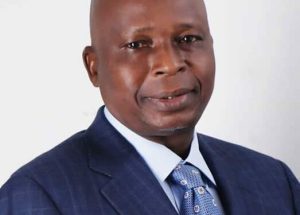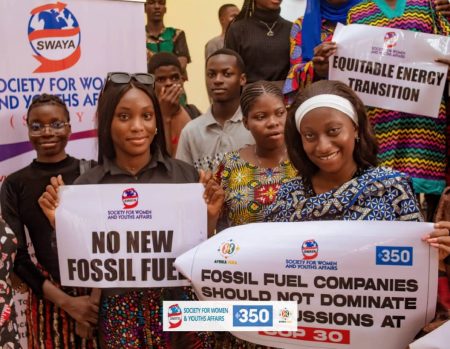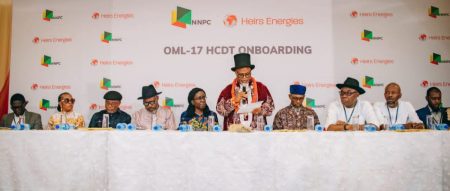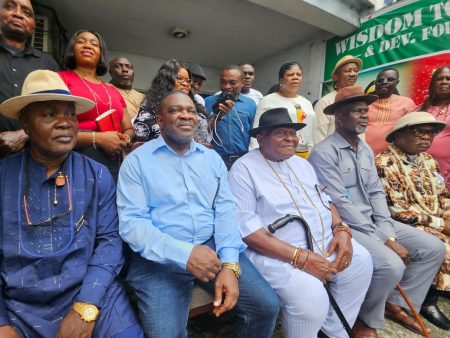
Mkpoikana Udoma
Port Harcourt — A coalition of civil society organisations, CSOs, and members of host communities in the Niger Delta region have dragged the National Assembly and the Attorney General of the Federation to court over section 257 of the Petroleum Industry Act, PIA 2021, which bothers on Host Communities Development Trust, HCDT.
The coalition, in a suit number FHC/PH/CS/181/23, pointed out that the PIA would lead to more deprivation and conflicts instead of promoting development, especially since the Act treats host communities as oil company colonies and mandates them to guard oil infrastructure for free and unarmed; an aspect of the Act, which the litigants described as unjust.
The plaintiffs are asking the Court to, amongst other things, determine whether the penalisation of civil unrest in its entirety (which includes lawful protest and peaceful demonstrations) by the provisions of section 257 (2)(3) of the PIA is not illegal and unconstitutional in regards to Sections 38, 39 and 40 of the 1999 Constitution of Nigeria, which provides for freedom of association, assembly, expression and protest.
Speaking on behalf of the litigants, the Executive Director of We The People, Comrade Ken Henshaw, noted that several provisions of the PIA 2021 have the potential to cause conflict and disaffection, such as the establishment and management of the Host Communities Trust which emphasise the primacy of oil firms, restrict community involvement, and force duties on communities that they are not legally allowed to take on.
Henshaw explained that Section 257 of the Act upholds that in case of vandalism, sabotage or civil unrest, the host community will forfeit its entitlement of the HCDT funds (which is 3% of the oil company’s operating cost) for repair or replacement of the damaged oil facility, and operating expenditure incurred during production shutdown, or the value of lost oil, gas, condensate, or natural gas liquids.
He wondered how unarmed communities would protect oil facilities for the settlors, whereas the military, the JTF, Civil Defence, Police and pipeline security contractors, with humongous contract sums, have all failed; insisting that punishing oil-producing communities for the criminal actions of others was not only prejudiced, but illegal.
“No Nigerian law permits the award of punishment for any supposed crime without the determination of a court of law. It is implausible that an entire community, including all its men, women and children collectively sabotaged oil infrastructures. Why then should the entire community bear the consequences?
penalization of a person or a group of persons for the wrongdoings of others.”
He continued: “The PIA erroneously assumes that any third party interference with any oil facility is perpetrated by oil producing communities who must therefore be punished by deducting from their share of HCDT benefits. Nothing is further from the truth. Several reports have carefully documented the complicity of an array of actors in the oil theft ecosystem (which is the principal reason for oil facility vandalism). Identified actors include military personnel, oil company officials, armed criminals from all parts of the country, foreign nationals, etc. Punishing oil-producing communities for the criminal actions of others is not only prejudiced, it is also illegal.
“The PIA forces communities to take responsibility for the protection of oil infrastructure. The Act does not say how it expects unarmed and untrained communities to guard oil facilities against well-established and well-armed cartels of oil thieves, a responsibility oil-producing Nigerian security forces have consistently failed to fulfil. The only plausible explanation is that the Act accepts and has now codified the unverified narrative often presented by oil companies that communities are responsible for the majority of oil infrastructure sabotage. While available evidence points to the contrary, this provision of the Act is an outright criminalization oil oil-producing communities.
“In 2022 alone, Nigeria’s National Oil Spill Detection and Response Agency, NOSDRA reported crude oil spill worth 18,836, 805 barrels. Calculated against the current average cost of a barrel of crude oil, this gives a figure well above $1.5 billion. This amount is likely higher than the entitlement of all HCDT put together. It does not include the cost of repairing the damaged facilities and other costs. It is likely that when implemented, this provision will lead to a consistent shortfall in funding for the HCDT Some communities may even be left ‘owing’ and in debt for future HCDT funds. Without a doubt, this provision of the PIA will result in conflicts.
“The reference to civil unrest as one of the conditions that could result in the denial of benefits to communities is disturbing. It is possible to expand this provision to include all protests against oil companies, including other forms of public (and legal) expression of concern and dissent. The fluid usage of the term in the Act, and the lack of further clarification allows oil companies room to stretch the application of the provision, especially against itinerant communities. In practical terms, the inclusion of the provision against ‘civil unrest’ amounts to stifling community dissent.”
Concerned with the above contentious implications of Section 257 of the PIA, the coalition made up of civil society organisations and members of oil-producing communities, has asked the Federal High Court to provide an interpretation of Section 257 of the PIA. The coalition also berated federal lawmakers from Niger Delta for failing their constituents, during the making of the Act.
“Whether the penalization of civil unrest in its entirety (which by definition includes lawful protest and peaceful demonstrations) by the provisions of S. 257 (2,3) of Petroleum Industry Act 2021 is not illegal and unconstitutional having regard to Sections 38, 39 and 40 of the 1999 Constitution of Nigeria, which provides for freedom of association, assembly, expression and protest.



